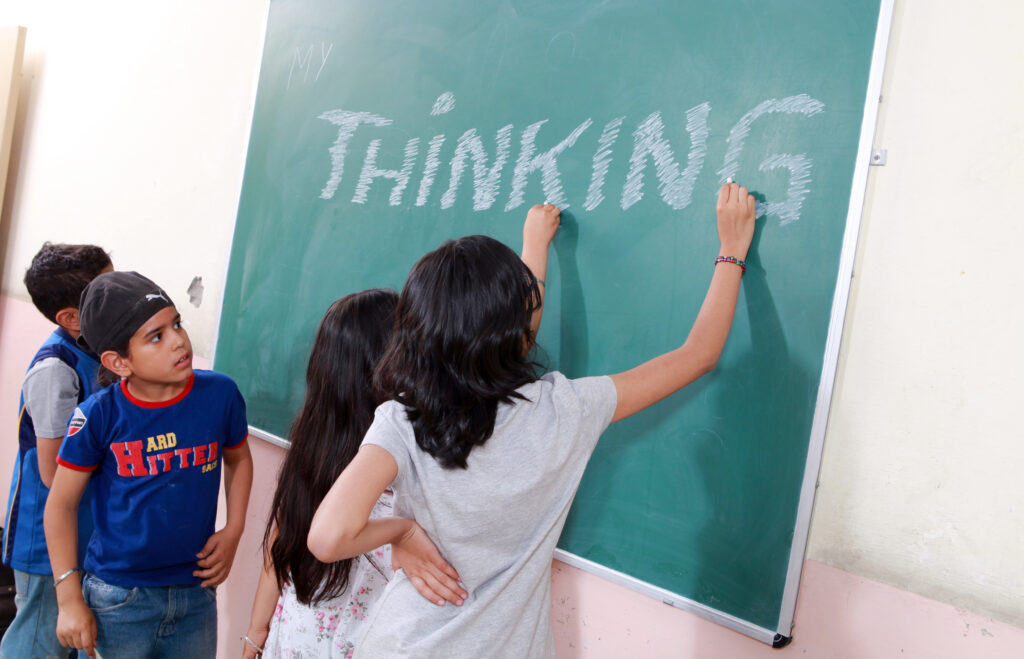Thinking is a function of the human mind which is used for various tasks, and contrary to the common belief can be developed. By use of thinking skills children focus on ‘knowing how’ as well as ‘knowing what’ i.e. learn how to learn. Thinking skills stand at the heart of learning whereby they make certain learning possible. They make the learner learnable to carry out various tasks. Despite this, it is possible to learn without thinking (rote learning or learning by accident). The role of memorisation is clearly important in the case of learning without thinking.

Thinking Skills – a category as important as maths or reading – enable children to apply the content of any academic subject to their daily life. Thinking Skills make an intermediary layer without which application of any kind of content is ‘not’ possible in real life.
- Learning thinking skills cannot be facilitated on the basis of information or discussion alone. Moreover, it is not just about teaching, it must also include experiential learning, i.e. practical experience and reinforcement of the skills for each student in a supportive learning environment (excerpt from Inter-Agency meeting on Life Skills Education by Department of Mental Health, WHO Geneva).
- Thinking skills education should be designed to facilitate the practice and reinforcement of psycho-social skills in a culturally and developmentally appropriate way; contributing to the promotion of personal and social development, the prevention of health and social problems, and the protection of human rights. (Conclusion of United Nations Inter-Agency Meeting, Geneva)
- Thinking Skills development is critical for physical health development (excerpt from Skills for Health Framework document issued by WHO, UNICEF, UNESCO, UNFPA & World Bank).
Research across the globe have unequivocally shown that children learn best when they are interested in the material or activity they are learning.
Play — from building dialogues to enacting stories to inventing games — can allow children to learn varied thinking abilities at their own pace.
It makes them acquire Higher Order Thinking Skills, like generating testable hypotheses, imagining situations from someone else’s perspective, thinking of alternate solutions etc. Real learning happens when it is done in a learner-centric, learner-induced environment, thereby focusing on the optimal functioning of a mind. The most effective learning moments occur when learning is natural, active and meaningful when it involves the brain’s natural function of creating meaning from an experience.
Let us make Thinking and Learning a fun-filled, enjoyable act for our children!

